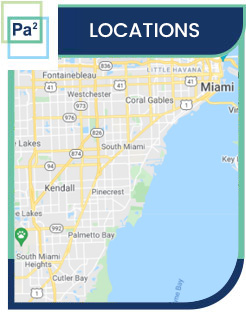Food and Skin Allergy Treatment Specialist Q&A
Food and skin allergies can be mild or severe, causing symptoms like hives and itching. Piniella Asthma + Allergy specializes in treating allergies and offers quality medical services for patients of all ages. Our allergist Dr. Carlos J. Piniella and his experienced team can diagnose specific allergies and develop personalized treatment plans. Contact us for more information or schedule an appointment online! We have convenient locations to serve you in Coral Gables FL and Palmetto Bay FL.


Table of Contents:
What is the best treatment for food allergies?
What are the 3 most common food intolerances?
What is the main cause of skin allergy?
What treatment is used for food and skin allergies?
A food allergy can cause mild symptoms through to a severe, life-threatening symptom called anaphylactic shock. If you suspect that you have a food allergy, it is best to visit your doctor or an allergist to have your symptoms properly diagnosed and determine the exact food that is causing the reaction. Through testing, the doctor or allergist will be able to determine the extent of the reaction to gauge how dangerous exposure is for you and recommend a treatment plan should you come into contact with that allergen in the future. There are several options for treatment for food allergies. The first and most important option when it comes to food allergies is to avoid the allergen. Once the allergens are identified, your doctor can help you with understanding what foods you will need to avoid. Reading ingredient labels will become second nature over time to ensure that the allergens aren’t hidden inside a long list of ingredients in the food you eat. Medications can help to ease symptoms and reduce the reaction your immune system has to some types of allergies. Medications can be prescription or over-the-counter and are available in liquid, pills, eye drops, or nasal sprays. Sometimes allergies can be relieved through allergen immunotherapy. This process can take a few years and involves injections of allergen extracts over a period of time to build up immunity. People with severe, life-threatening allergies are often recommended to carry an emergency shot of epinephrine with them. This shot can relieve severe symptoms until the individual is able to receive emergency treatment.
Food intolerances are different from food allergies in the way our bodies react to the food we ingest. In the case of a food allergy, our immune system reacts to food it deems harmful and causes reaction symptoms that affect the entire body, from mild symptoms to severe, potentially life-threatening symptoms. Food intolerance on the other hand is when our body finds it difficult or impossible to digest specific foods, creating a gastrointestinal disturbance. The symptoms of a food intolerance primarily affect the digestive system and are not usually dangerous. The most common food intolerances are the sugar found in milk known as lactose, a protein also found in milk called casein, and gluten, which is a protein found in barley, wheat, and rye.
Skin allergies are caused when an allergen comes into direct contact with exposed skin. Coming into contact with an allergen will cause the skin to react at the point of contact, with the skin becoming red, bumpy, itchy, swollen, or scaly depending on the reaction between the skin and the allergen. This reaction is known as allergic contact dermatitis and is the main cause of skin allergies. Allergic contact dermatitis can also be caused by coming into contact with poison sumac, poison ivy, and poison oak. In this case, it is the oily coating on the plants that causes a reaction with the skin and a reaction can occur not just in direct contact between the skin and the plant, but also if the skin touches another surface that has touched the plant such as clothes, pets, and gardening tools.
Your doctor will need to determine if the symptoms you are experiencing are an allergic reaction and identify what your body is reacting to in order to provide proper treatment options. Once the allergens have been identified, along with your reaction to the allergens, you can work to eliminate your exposure to them, whether it be a food or skin allergy. Understanding that some allergens are unavoidable such as dust or pollen, your doctor can prescribe or recommend an over-the-counter medication that will help ease symptoms and reduce the reaction your immune system has. If these treatments don’t work, your doctor might suggest immunotherapy. This is done through regular injections of the allergen to help you build up a tolerance over time. In cases of severe allergic reactions that are potentially life-threatening, you may want to carry an epinephrine shot with you when you are in situations where you could potentially be exposed to the allergen or have one readily available and easy to grab should you ever need it. An epinephrine shot is not a replacement for emergency medical treatment but can reduce the severity of the symptoms until you are able to get medical care.
If you want to know more about our services, call us or schedule an appointment online! We serve patients from Coral Gables FL, Palmetto Bay FL, Westchester FL, Brownsville FL, Kendall FL, Pinecrest FL, Richmond West FL, and Goulds FL.

Additional Services You May Need
▸ Asthma
▸ Allergy Testing
▸ Food Allergies
▸ Immunotherapy
▸ Patch Testing
▸ Allergy Treatment
▸ Pediatric Asthma Specialist
▸ Pediatric Allergist
▸ Insect Bite Allergy
▸ Drug Allergy
▸ Seasonal Allergies
▸ Skin Allergy

Additional Services You May Need
▸ Asthma
▸ Allergy Testing
▸ Food Allergies
▸ Immunotherapy
▸ Patch Testing
▸ Allergy Treatment
▸ Pediatric Asthma Specialist
▸ Pediatric Allergist
▸ Insect Bite Allergy
▸ Drug Allergy
▸ Seasonal Allergies
▸ Skin Allergy


